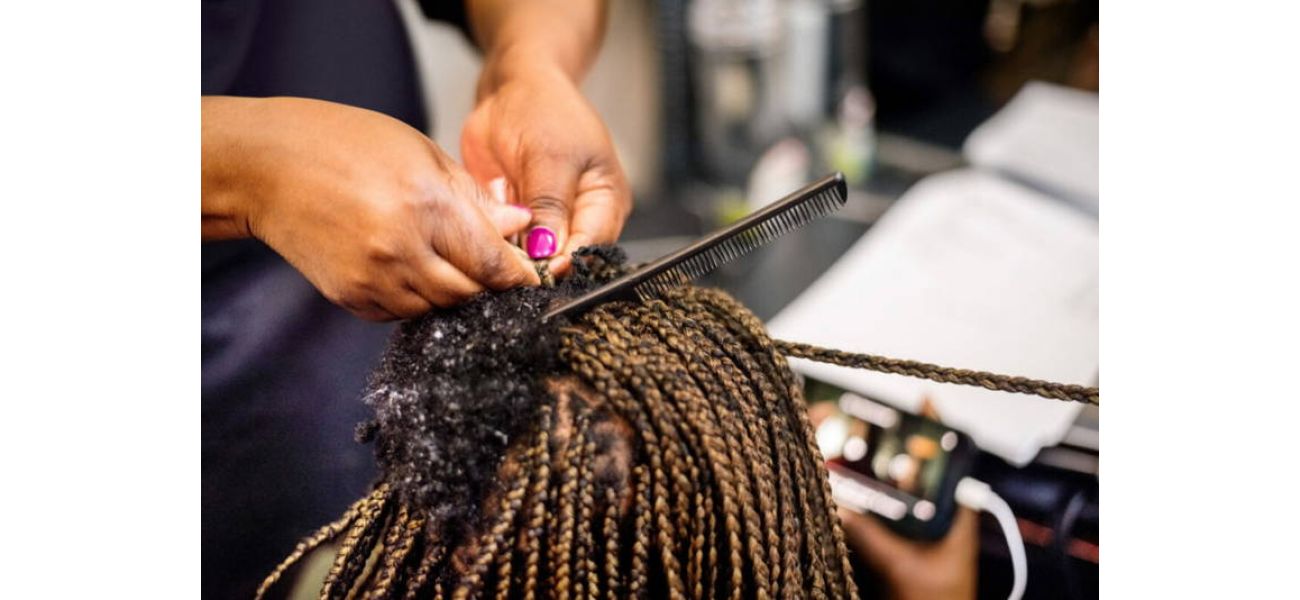Black women's health is threatened by toxic chemicals found in hair products used for braiding, new testing shows.
Black women use these products the most, but testing reveals high usage could harm their communities.
February 28th 2025.

After hearing numerous horror stories from Black women about their negative experiences with popular synthetic braiding hair brands, scientists decided to conduct tests to determine the cause of these medical issues. As protective styles have been a staple for Black women for many years, these new revelations bring to light the potential harm they may cause, rather than just their aesthetic appeal. The tests conducted by Consumer Reports revealed that 10 popular synthetic braiding hair products contained heavy metals, volatile organic compounds (VOCs), and even known carcinogens such as lead and acetone.
In 2023, Chrystal Thomas, a student at the Albert Einstein College of Medicine and the City University of New York, experienced severe discomfort after getting braids using the popular synthetic hair brand Kanekalon. Within a short time after the service, Thomas began to suffer from sleeplessness, throat irritation, and difficulty focusing on her work due to the overwhelming smell. Even after washing her hair multiple times, the smell persisted, leading her to remove the braids after only a week and a half. This is highly unusual, as Black women typically keep their braids in for several weeks. Thomas then delved into research about the potential health risks associated with braiding hair and published her findings in a commentary article, raising concerns about the safety of synthetic hair for Black women. She found that some products contain a copolymer of modacrylic and vinyl chloride, as well as other chemicals known to have adverse health effects. Thomas noted that the unique aspect of braid extensions is the extended length of time Black women are exposed to these ingredients, typically four to six weeks.
In 2023, the U.S. market for synthetic braiding hair products was valued at almost $3 billion, with a projected increase to $6.34 billion by 2029. As Black women are the primary consumers of these products, it raises concerns about the potential risks to the community. Scientist Eric Boring tested multiple synthetic braiding hair brands, including Sensationnel, Sassy Collection, Magic Fingers, and Shake-N-Go, and found that all of them contained carcinogens. Three products even contained benzene, a known cause of acute myeloid leukemia and discouraged for use in laboratories due to its cancer-causing potential. Additionally, two products contained an animal carcinogen, and all samples contained methylene chloride, a probable carcinogen.
Despite these concerning findings, brands like Hair Zone/Sensationnel and Magic Fingers have defended their products, stating that they stand by the safety and quality of their materials. However, experts recommend that Black women check for product recalls, read labels carefully, and limit the duration of their styles as a precaution to reduce health risks before purchasing and installing synthetic braiding hair. The safety of Black women should be a top priority, and it is crucial to address these potential health hazards within the hair industry.
In 2023, Chrystal Thomas, a student at the Albert Einstein College of Medicine and the City University of New York, experienced severe discomfort after getting braids using the popular synthetic hair brand Kanekalon. Within a short time after the service, Thomas began to suffer from sleeplessness, throat irritation, and difficulty focusing on her work due to the overwhelming smell. Even after washing her hair multiple times, the smell persisted, leading her to remove the braids after only a week and a half. This is highly unusual, as Black women typically keep their braids in for several weeks. Thomas then delved into research about the potential health risks associated with braiding hair and published her findings in a commentary article, raising concerns about the safety of synthetic hair for Black women. She found that some products contain a copolymer of modacrylic and vinyl chloride, as well as other chemicals known to have adverse health effects. Thomas noted that the unique aspect of braid extensions is the extended length of time Black women are exposed to these ingredients, typically four to six weeks.
In 2023, the U.S. market for synthetic braiding hair products was valued at almost $3 billion, with a projected increase to $6.34 billion by 2029. As Black women are the primary consumers of these products, it raises concerns about the potential risks to the community. Scientist Eric Boring tested multiple synthetic braiding hair brands, including Sensationnel, Sassy Collection, Magic Fingers, and Shake-N-Go, and found that all of them contained carcinogens. Three products even contained benzene, a known cause of acute myeloid leukemia and discouraged for use in laboratories due to its cancer-causing potential. Additionally, two products contained an animal carcinogen, and all samples contained methylene chloride, a probable carcinogen.
Despite these concerning findings, brands like Hair Zone/Sensationnel and Magic Fingers have defended their products, stating that they stand by the safety and quality of their materials. However, experts recommend that Black women check for product recalls, read labels carefully, and limit the duration of their styles as a precaution to reduce health risks before purchasing and installing synthetic braiding hair. The safety of Black women should be a top priority, and it is crucial to address these potential health hazards within the hair industry.
[This article has been trending online recently and has been generated with AI. Your feed is customized.]
[Generative AI is experimental.]
0
0
Submit Comment





